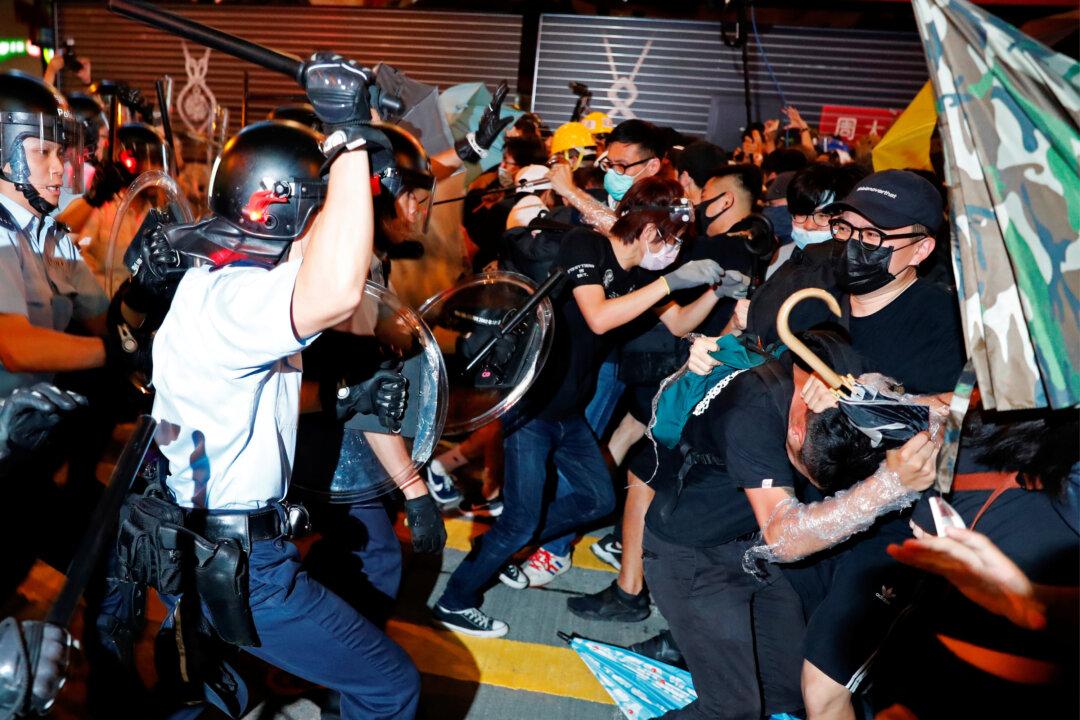HONG KONG–Police arrested six people during a demonstration in one of Hong Kong’s most popular tourist areas on July 7, where thousands of protesters sought to raise awareness among mainland Chinese visitors about the political crisis that has rocked the city.
Protest organizers said 230,000 people marched through the streets of Kowloon, across the harbor from Hong Kong’s Central business district, in the latest wave of demonstrations against an extradition bill that would allow people to be sent to mainland China to face trial.





